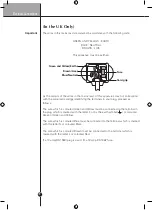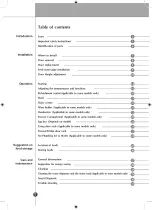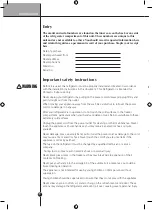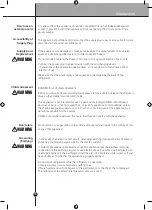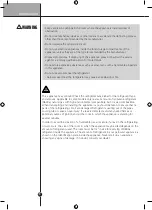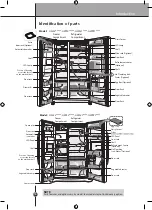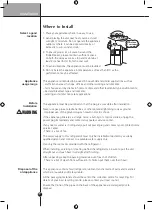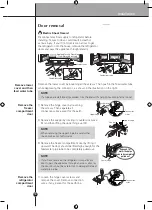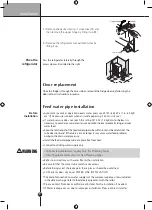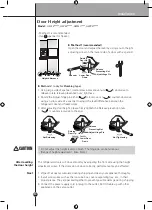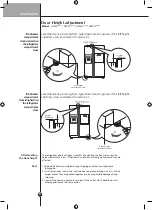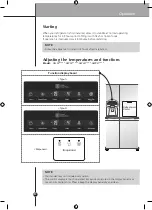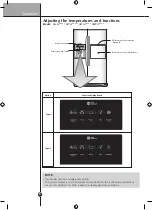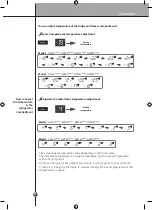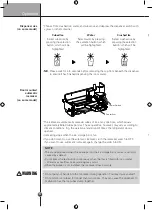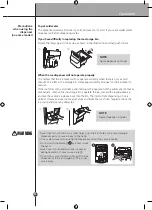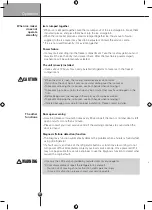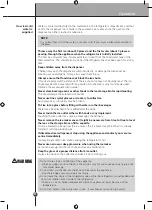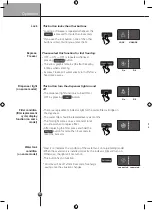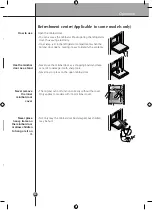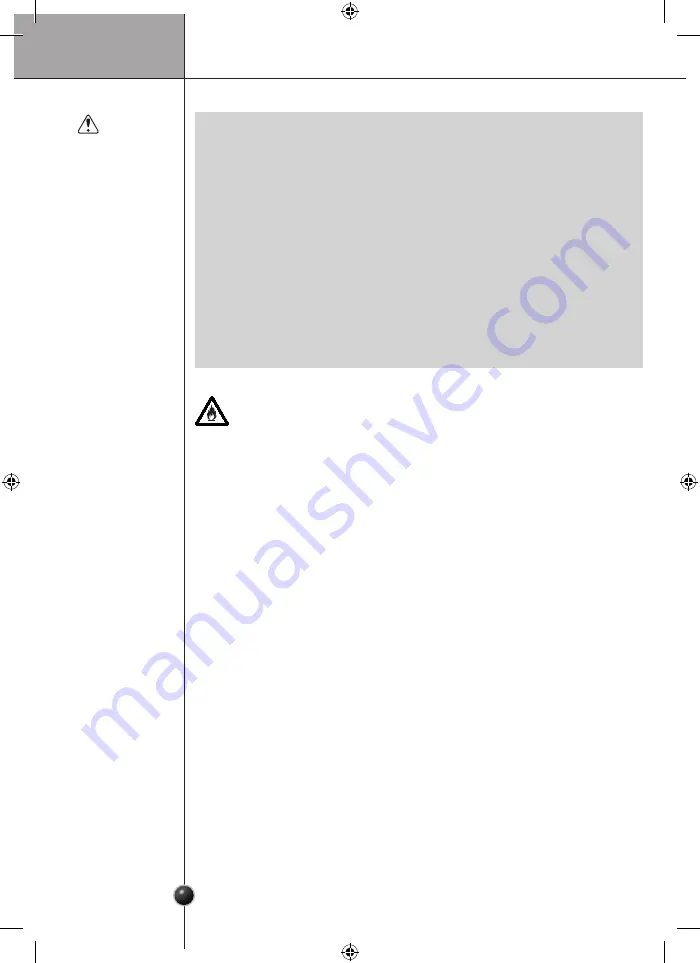
Introduction
5
ENGLISH
•
Keep ventilation openings in the room where the appliance is installed clear of
obstruction.
•
Do not use mechanical devices or other means to accelerate the defrosting process,
other than those recommended by the manufacturer.
•
Do not damage the refrigerant circuit.
•
Do not use electrical appliances inside the food storage compartments of the
appliance, unless they are of the type recommended by the manufacturer.
•
Disposal procedures. If disposing of this appliance, please consult with a service
agent or a similarly qualified person for more details.
•
Do not store explosive substances such as aerosol cans with a flammable propellant
in this appliance.
•
Do not use aerosols near the refrigerator.
- Aerosols used near the refrigerator may cause an explosion or fire.
This appliance may contain (Check the rating/comliance label for the refriger-ant type
and amount. Applicable to some models only) a small amount of isobutane refrigerant
(R600a), natural gas with high environmental compatibility, but it is also combustible.
When transporting and installing the appliance, care should be taken to ensure that no
parts of the refrigerating circuit are damaged. Refrigerant squirting out of the pipes
could ignite or cause an eye injury. If a leak is detected, avoid any naked flames or
potential sources of ignition and air the room in which the appliance is standing for
several minutes.
In order to avoid the creation of a flammable gas air mixture if a leak in the refrigerating
circuit occurs, the size of the room in which the appliance may be sited depends on the
amount of refrigerant used. The room must be 1m
2
in size for every 8g of R600a
refrigerant inside the appliance. The amount of refriger-ant in your particular appliance is
shown on the Identification plate inside the appliance. Never start up an appliance
showing any signs of damage. If in doubt, consult your dealer.
WARNING


